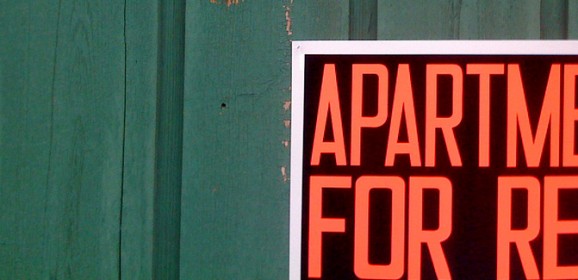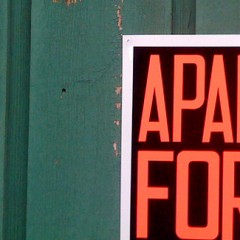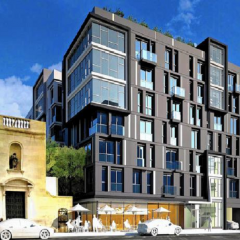Marco Rubio’s Adventures in Real Estate
Sen. Marco Rubio bought a house. Then he bought another house. And another. Then it all went bad! Oh, the glory days of the real estate bubble! The past few days have seen two stories, one from the Associated Press and another from the New York Times, detailing Rubio’s not-so-excellent adventures in real estate. The short summary: The Florida senator and Republican presidential candidate, who was formerly so broke he and his wife moved into his mother-in-law’s West Miami home so they could save on rent, quickly turned around and bought a 1,200-square-foot residence in 2003 with a no-money-down loan. He then bought another house—this one with a fellow state legislator—in Tallahassee, so he would have a place to live when he needed to be in the state capital. Once again, Rubio didn’t bother with a down payment. Then he and his wife apparently decided 1,200 square feet was not enough for their growing family, and they purchased a 2,600-square-feet home with a pool for $550,000. This time they put 10 percent down—only to quickly see the home appraised for $735,000. The Rubios’ response? They took out $135,000 on a home equity line. The house in Tallahassee went into foreclosure in 2010, but the co-owner came up with enough money to get it out. The two recently sold it for $18,000 less than they paid in 2005. As for the current family home, an attempt to unload it for $675,000 in 2013 failed. The house next door went into foreclosure, […]
Real estate flipper gets 11 years, ordered to pay $7 million
A Florida man described as a “mastermind of real estate flipping” was sentenced to more than 11 years in federal prison and ordered to pay more than $7 million. A federal judge in Tampa sentenced Stephen Mayer about three months after he was found guilty on nine counts of wire fraud and conspiracy. Evidence presented during a nine-day trial showed Mayer bought distressed properties, then resold them at a higher price to “credit partners,” who never intended to live in the properties or to make mortgage payments. The credit partners then deeded the properties back to Mayer or one of his several shell companies, and he flipped them again to other credit partners, skimming the equity. He failed to make mortgage payments and the properties ultimately went into foreclosure. Agents identified more than 20 homes used by Mayer in the conspiracy between 2003 and 2007. Most of the properties were in Hillsborough County, according to the original complaint against Mayer, filed in April 2014. Mayer used the proceeds from the real estate scheme to fund a lavish personal lifestyle, according to a press release from the U.S. Attorney for the Middle District of Florida. Lenders lost more than $3.1 million, prosecutors said. Read more: Real estate flipper gets 11 years, ordered to pay $7 million
Apartment Hunting? 5 Things to Keep an Eye Out For
Finding the perfect apartment to rent can be a challenging and tiresome process. You want to make sure you’re actually going to be able to afford the place, that it’s in a nice area, and that you’ll be able to bring your pet along as well. Considering all of the stress usually associated with apartment hunting, it’s easy to overlook some basic factors you should pay close attention to. Check out this article for a few tips about what to keep an eye out for. Looking for an apartment to rent can be very exciting. You can already envision yourself painting all the walls deep red, decorating the furniture with cheap thrift store treasures, and hosting fancy potluck dinners where everyone discusses the latest Coen brothers’ movie. Not so fast though. Your enthusiasm, coupled with the stress of moving and the pressure of finding a place that meets all of your requirements can easily make you blind to certain flaws during your search. These flaws, if overlooked, can cause the apartment you’re considering to be hard to live in later on. That dotted line on the list? Don’t sign it until you make sure you’ve carefully gone through every factor we’ve listed below. You’ll thank us later. 1. Pests Cockroaches and other nasty pests may not show their face in broad daylight when you’re most likely visiting the apartment. That’s why paying special attention to the cabinets should be top of your list. Besides checking to see if there’s enough […]
Zillow’s Agent Finder feels like Yelp for real estate
Where the portal misses the mark and competitors could catch up I had just finished writing a post about the lack of interesting consumer innovation this winter in real estate. Then, along came Zillow’s Agent Finder. It’s exactly what you’d expect: an attractive, easy-to-use interface that lets consumers see agents in a geographic location based on reviews, listings and past sales. Of course, there are also some spots up top for agents who are paid advertisers. Are there holes in the data? Absolutely. Will consumers care? Probably not. Agent Finder feels like Yelp for real estate; it allows for positive and negative reviews, without interpreting the company’s financial success. Yelp makes consumers feel comfortable that even though they might not have all of the available information, they have enough to make a good decision. That’s the feeling Agent Finder might give to real estate consumers — comfort that they’ve been able to make a good choice, even if all of the choices might not have been present. Agent Finder will still present an inaccurate profile of some agents because of the lack of comprehensive sales data, but it will do so with less antagonism than the stark ranking via production data that we saw in the past with Redfin’s Scouting Reports or NeighborCity’s scoring system. Much of the agents’ past sales data has to be manually input, ensuring that we’ll have a picture that’s skewed toward the Zillow-friendly agent. That will likely boost agent adoption of the platform. I could […]
$90-million apartment complex to rise near former downtown L.A. cathedral
A $90-million apartment project is underway next to the landmark Spanish-Baroque building that once housed St. Vibiana’s Cathedral in downtown Los Angeles. Developer Holland Partner Group broke ground this month on an eight-story, 237-unit building with 4,000 square feet of retail. The construction ends a decades-long effort to redevelop the lot near 2nd and Main streets where the Union Rescue Mission once served thousands of homeless men and women. The cathedral and the nondenominational mission have since moved, and Holland’s project is just the latest development along Main Street. The area has transformed over the last 15 years from a rough stretch widely considered part of skid row into one with upscale restaurants, $2,000-a-month lofts, and bars serving craft beer and cocktails. In November, the century-old Regent Theater near 5th and Main streets reopened with an attached cocktail bar and gourmet pizza joint. A month later, renowned chef Neal Fraser debuted Redbird in Vibiana — as the desanctified church is now called — which prolific downtown developer Tom Gilmore transformed into an event space in 2005. “Main Street now has a CrossFit,” said Thomas D. Warren, who oversees Holland’s Southern California operations. “It’s really lively.” The Holland development — near the Downtown Independent theater — will probably attract those seeking such an atmosphere, Warren said. Rents for the studios, one-, two- and three-bedroom units are expected to range from $1,500 to $4,000. Residents will be able to enjoy a roof-top deck with a pool and hot tub. Leasing is expected […]
Chinese Rushing to Buy Property for Portugal Visa Get Burned
(Bloomberg) — Billboards in Chinese at Lisbon’s international airport peddling luxury properties leave little doubt about who is buying real estate in Portugal. While the ads offer a chance at securing a so-called golden visa to live in Portugal in exchange for property investments of at least 500,000 euros ($559,000), they leave out the golden rule of such purchases: never rush into a deal. The haste with which some Chinese buyers have acquired their piece of Portugal has left them feeling cheated once they realize they might have struck better deals. Some may even have been victims of middlemen who charge commissions of as much as a quarter of the value of the transaction. “Many Chinese land in Portugal for the first time, don’t speak the language and buy a home in a matter of days,” said Y Ping Chow, head of the Chinese League in Portugal, a Lisbon-based group that promotes the Chinese community. “Some of these investors got burned.” Portugal can’t afford to leave a sour taste in the mouth of Chinese investors. The golden-visa program, which began in late 2012 while the country, like much of Europe, was in the throes of the financial crisis, has raked in more than one billion euros in much-needed investment, mainly from Chinese property buyers, according to the country’s foreign ministry. The Chinese accounted for more than 80 percent of the 1,526 resident permits issued under the program last year, according to the ministry. Home prices in Portugal rose 1.2 percent […]
















